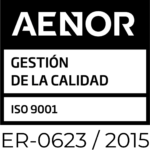The High Court maintains that the solution proposed by the majority doctrine and the General Directorate of Registries and Notaries (DGRN) leads to a result of absolute lack of transparency, since the most important remunerations, such as those of the Chief Executive Officer, come from the knowledge of the partners and the decision-making power of the General Meeting, to be attributed to the Board of Directors.
In this judgment the High Court argues that the concept of remuneration of directors «in their capacity as such» includes both the remuneration of the deliberative and executive functions and, therefore, the regime for approving the remuneration of directors who perform executive functions it is not limited to the regime of article 249 of the Capital Companies Law, that is, to the requirement of a contract approved by a two-thirds majority by the board itself, but, in addition, must be subject to the regime of article 217.
In short, it understands that the remuneration of all administrators, executive and non-executive, is subject to the application of three levels of decision:
(i) The Articles of Association, which must determine the remuneration system (although its amount is not mentioned);
(ii) The resolutions of the General Meeting, which must set the maximum amount of remuneration (including executives), and
(iii) The resolutions of the Board of Directors, which within the framework established by the Articles of Association and the resolutions of the General Meeting, distribute the remunerations among the managers according to their functions and responsibilities.
















